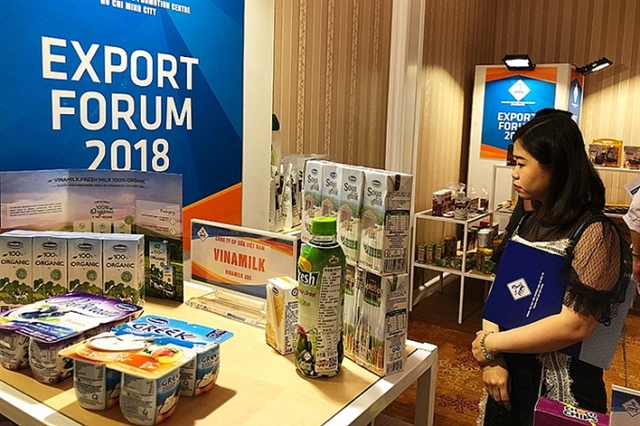Halal food is a promising export product for Vietnamese companies to pursue though they may face challenges.

Halal food is a promising export product for Vietnamese companies to pursue though they may face challenges.
The Halal Certification Agency in HCM City said hundreds of local enterprises have recently sought instructions for exporting to markets like Taiwan and Nepal.
Many like Orion Vina, Vinamilk, Nestle Vietnam, Cai Lan Oils and Fats Industries Company, Tuong An Vegetable Oil Company, Minh Phu Seafood Corporation, and An Phu Seafood Corporation have received Halal certification.
Halal refers to meat from an animal that has been killed in the way that is demanded by Islamic law.
Nguyen Thi Ngoc Hang, marketing head of the Halal Certification Agency, was quoted by Nguoi Lao Dong (The Labourer) newspaper as saying Viet Nam has a great advantage thanks to its huge agricultural and fisheries resources.
The export opportunities are huge if enterprises have well-trained human resources, she said.
At a recent conference on the potential of the halal market, experts said companies should register for certification as it is a sign that tells halal customers their products are suitable for them.
The conference said the market would be worth trillions of dollars as the Muslim population increases from 1.5 billion in 2010 to 2.7 billion by 2050.
Nepal and Taiwan are two promising markets.
Currently, trade between Viet Nam and Nepal is modest compared to the potential, according to the Ministry of Industry and Trade.
Taiwan is also a huge market and Vietnamese products are quite competitive there, with many Vietnamese types of products being exported.
But experts said the challenges would face companies right at the stage of registering for a halal certificate.
Hang said the fees are not low and the certificates are different for different markets, meaning companies need to get many different ones.
Dang Hoang Giang, deputy chairman of the Viet Nam Cashew Association, said in many markets, Viet Nam has no diplomatic presence and so companies have difficulty getting assistance.
Geographical distance remains an obstacle too and it takes one to two months to ship goods to Africa, he said.
Payment is also a problem since importers in many of these markets do not offer letters of credit from banks.
The Ministry of Industry and Trade warns exporters to be careful when selling to these new markets.
They should first collect information about importers from third parties like trade offices, business groups and logistics companies, it said. — VNS




